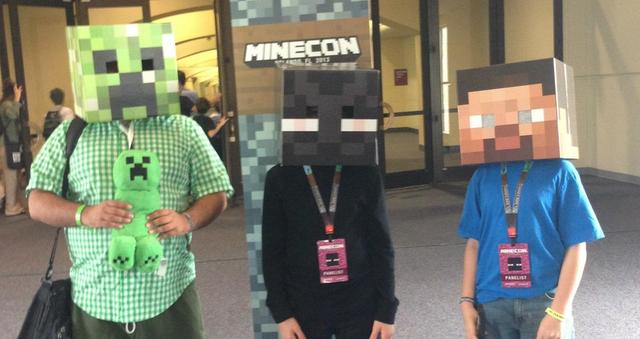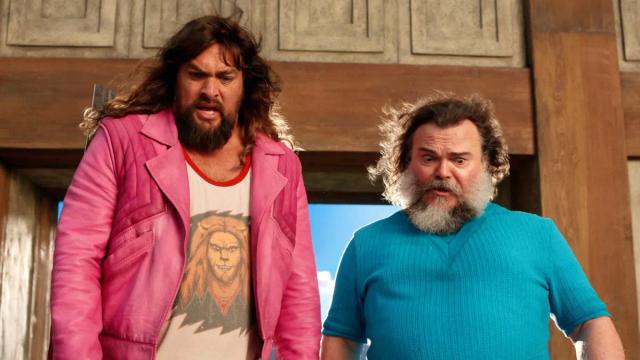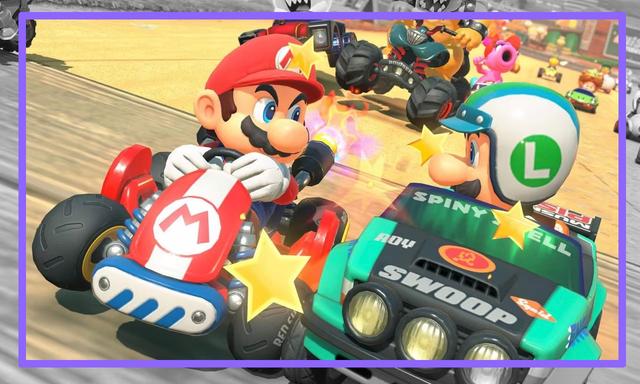If you click on a link and make a purchase we may receive a small commission. Read our editorial policy.
The best dystopian TV shows: Plant zombies, regular zombies, & robots with a plan bring about TV's many endings for humanity
From the aftermath of interstellar genocide to the Last Man on Earth, there's a lot of ways TV has addressed the apocalypse in recent years

Popverse's top stories of the day
- Disney & Lucasfilm are quietly planning a 50th anniversary Star Wars movie that's focused on all-new characters
- MEMBERS ONLY: Follow along live to the Mandalorian & Grogu movie panel from Star Wars Celebration Japan 2025!
- WATCH NOW: The gentleman villain Mads Mikkelsen tells us how he balances being charming and despicable in our favorite movies & TV series
Sometimes, you have to spend some time in the end of the world to fully appreciate just how bad things can get — or, if you want to be slightly more optimistic about it (a fine trait to have in any dystopia, let’s be honest), how good you have it right now. While movies might have the budget to wow you with the spectacle of the apocalypse, there’s an argument to be made that television should be the preferred medium to tell post-apocalyptic dystopian stories with any real sense of nuance.
Oddly enough, this realization only really seems to have made any impact on the industry in the past quarter-century or so. Sure, there were a few, scattered attempts to tell extended end of the world stories on TV in the 20th century (Hi, the BBC’s classic '70s sci-fi drama The Day of the Triffids), but when it comes to properly making an effort to tell these kinds of stories on the small screen effectively, it seems to be a distinctly 21st century phenomenon. Don’t believe me? Take a look below and tell me if you can see the light. (Or, you know, the dark.)
Battlestar Galactica (2003-2009)

While we’ll all admit that, yes, the final season of the show was certainly filled with some storytelling choices that might not have stood the test of time — personally, I think ‘All Along the Watchtower’ is the first sign that the wheels are about to come off the wagon — there’s no denying that the first three seasons of Ronald D. Moore’s reboot version of Battlestar Galactica is not just some of the finest science fiction television of all time, but some of the best television about the end of the world, political dystopias, and the dark side of human nature in general. What will people do to survive in the face of of unthinkable horror, and what (and who) will they sacrifice to make it happen? This is the show that dared to ask the difficult questions, and come up with even more awkward and uncomfortable answers… at least until that awkward and uncomfortable final season.
Dead Set (2008)

A rarity in the U.S., but something definitely worth hunting down is this short comedy horror series in which a zombie apocalypse hits Britain… at the same time as a new season of reality show Big Brother, and audiences get to see what’s happening from the point of view of the few survivors left entirely unknowing in the relative safety of the sealed-off Big Brother House. Grim, darkly funny, and filled with no small amount of media satire, it shouldn’t surprise you to learn that this was one of the first TV projects from Charlie Brooker, who’d go on to create Black Mirror soon afterwards.
The Walking Dead (2010-2022)

Playing out like an extended remix of the previous two entries, The Walking Dead took its lead from the source comic book of the same name, but became a phenomenon because it managed to dramatize the paranoid tension between survivors of an undead plague in a way that the comic never did. Credit that to the performances of the core cast, but also the work of a team of writers (that included co-creator Robert Kirkman) who dug deeper into the humanity of those left behind than the source material, taking full advantage of the opportunities (and greater narrative space) offered by the switch between mediums. There’s a reason this show has inspired no fewer than four spin-offs to date, and will likely continue to do so for some time to come…
The Last Man on Earth (2015-2018)

There are probably articles to be written about the necessary connection between dystopian situations and dark comedy — if nothing else, you have to laugh, as the saying goes — but The Last Man on Earth, co-created by Spider-Man: Into the Spider-Verse’s Phil Lord and Christopher Miller, did something even greater that just raise a smile: it also demonstrated the vast potential that awaited some very, very dumb people if they happened to be some of the few survivors of a plague that’s otherwise killed off the human race. Say what you like about Phil Miller, but he certainly took full advantage of his situation to loot the White House, share his thoughts and inventions with the world, and generally get away with everything that society wouldn’t have stood for in the Before Days. That didn’t always (or often) end well, but still: you’ve got to admire him for it nonetheless.
Station Eleven (2021)

Released as the COVID pandemic was entering its second year, it’s difficult not to read real world events into Station Eleven, an adaptation of a critically-acclaimed novel written years earlier. That’s not a bad thing; if anything, it made what was already a moving — at times, devastating — story about survival and rebuilding in the wake of a physical and emotional apocalypse even more meaningful, even if some of the backstory about the flu that devastated the world can hit far too close to home at times. What’s perhaps the most surprising thing about the miniseries is that the primary plots, which could otherwise feel as if they veer towards the melodramatic with the presence of cult leaders and the like, feel almost secondary to the inescapable gravity of the mood of the piece, which permeates every part of the series.
The Last of Us (2022-)

Another show that feels educated by the past few years, even if it comes from material that predates the Coronavirus, The Last of Us manages to find a hook for those of us who’d never played the game in the relationship between its two core characters (played by Pedro Pascal and Bella Ramsey), and the mission they find themselves on. That emotional bond anchors even the more outré elements of the series, including the plant zombies, and it’s a signifier of what The Last of Us as a show is really interested in: the humanity behind the apocalypse. As if that wasn’t immediately apparent, there’s also the show’s third episode, “Long, Long Time,” which proceeded to quietly murder all of us with the story of Bill and Frank. We’re still recovering, and it’s been more than a year.
Furiosa: A Mad Max Saga is in theaters now - if you got confused (or haven't got there yet), we have a guide to all the big questions with that ending. Get more with articles on Furiosa's new ride, an itinerary on how (and where) to watch all the Mad Max movies in chronological or release order, and the Mad Max movies' entire timeline explained.
Follow Popverse for upcoming event coverage and news
Find out how we conduct our review by reading our review policy
Let Popverse be your tour guide through the wilderness of pop culture
Sign in and let us help you find your new favorite thing.
















Comments
Want to join the discussion? Please activate your account first.
Visit Reedpop ID if you need to resend the confirmation email.